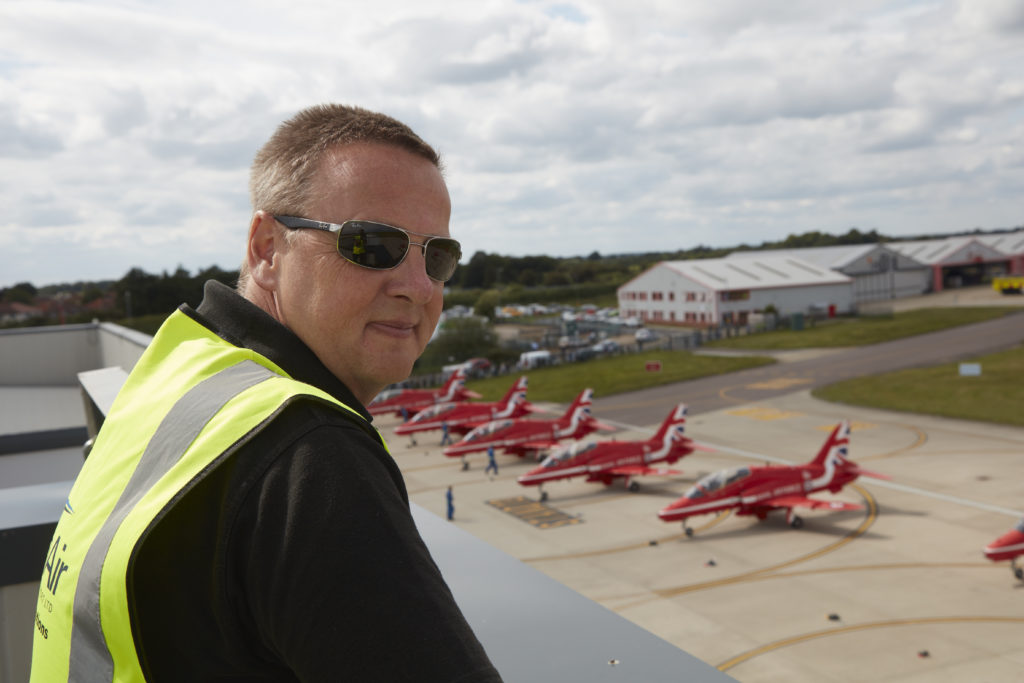John Dewing, flight support operations and facilities manager at SaxonAir, talks to BAI about potential business opportunities offshore, renewable energy and Brexit.
Tell BAI about yourself and your role at SaxonAir.
My current role at SaxonAir is flight support operations and facilities manager. I look after a small department of 14 staff who support the offshore industry in terms of passenger check-in and helicopter loading as well as any visiting GA aircraft, from the student pilot flying a Cessna 150 to the VIP flying in a Gulfstream 550.
I also have responsibility for the facility itself and manage the ongoing maintenance required to keep the building at its best, and developing areas such as the cafeteria and conference rooms.
What is SaxonAir currently working on?
It’s always been our ethos to diversify and not be a one-trick pony, which I believe we have and still are achieving. SaxonAir has many facets including helicopter charter, aircraft charter, flight support for aircraft handling, and an offshore centre of excellence, all of which have seen us continue to grow.
Flight support have been working with our partners CHC Helicopter and NHV Group to introduce other offshore operators to our facility to strengthen our position in this market. As a result, we expect a new offshore company to start with us in August this year, boosting our flights by up to another 80 a month.
We also worked closely with Great Yarmouth to promote their new air show this year and as a result, we hosted the Red Arrows and several other display aircraft such as Vampires and Strikemasters. We continue to strive to be the best we can be at what we do.
What are the key trends affecting the business aviation market at present?
The trends haven’t changed really as it’s always been about the quality of service and price. We have to offer value for money while giving a quality service. This is a balance of having the right type of staff with a can-do attitude and pricing that reflects the service we offer without being over the top.
Brexit is obviously a consideration for most businesses and the uncertainty that the future holds around the final outcome is not helpful for any business. However, my personal opinion is that aviation will remain much as it is now, as it’s not in Europe’s or our interest in imposing flight restrictions for aircraft operating to or from Europe or the UK, and therefore a negotiation on what we already have would be likely.
How do you think the market will progress in the next decade?
In terms of the offshore sector, I think there is still 30-40 years of gas reserves as yet untapped. Because of this, the next decade still looks positive and while I don’t see the market growing as it has in the past, there is enough confidence to see some modest growth.
What we will see is much more collaboration between operators to ensure that they can bring the gas ashore in the most cost-effective way possible. What we need to be looking at is what comes next if we are to survive in this volatile market, and the answer to that question is renewables. The wind farm sector continues to grow and as such needs support in terms of transporting workers and supplies to service them.
The business jet market has always remained steady, and even during the recession flights remained at a constant level through our facility. I would expect this to remain a constant through the next few years.
What does the next year hold for you?
The next year will be a push to reach the renewable industry to promote our facility and what it has to offer and to hopefully set the foundations for what comes next in the offshore industry.
We will continue to promote our services to the business community, and also push the military aviation sectors to use Norwich Airport for training and in turn the SaxonAir facility. In terms of the facility, we will continue to enhance what we have and promote the facility as an offshore centre of excellence.





